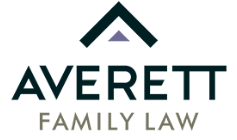By Melissa Averett, Attorney at Law
So, a Guardian ad Litem (GAL) has been appointed to your case in Orange or Chatham County, NC. What happens next?
Here is what to expect. The GAL was appointed based on a local rule that has been adopted in Orange or Chatham county[i]. Other counties may have different rules or no local rules regarding the appointment of a GAL.
What is a Guardian ad Litem (GAL)?
The GAL is a professional who has been trained at the Center for Cooperative Parenting[ii] and has at least 5 years experience as a family law attorney or mental health professional. Their role is to conduct an investigation regarding the best interests of the child(ren) involved in the case, and write a report stating and explaining their conclusions and recommendations.
We often refer to GAL’s as the eyes and ears of the court. Unlike the GAL, the judge is not going to go to your home. The judge will most likely never meet your child/children. The judge will not hear from witnesses who don’t show up for court (sick, out of town, can’t get off work, etc.). Personally, I believe that the more information the judge has, the better the judge’s decision will be.
What process does the GAL follow?
The GAL will conduct the investigation by interviewing you, the other party (typically your ex, unless you are fighting over custody with a grandparent or other third party who is not the parent of the child/ren), and the children. The GAL will visit your home at least once, sometimes twice. The GAL will also read the pleadings filed in the case, and any other evidence you want to present to the GAL, such as the children’s medical records, school records, pictures, tape recordings, text messages or other documents. The GAL will also interview collateral witnesses. [Collateral witnesses are independent witnesses who know you and your children.] The process takes about three months.
Choosing collateral witnesses is an important part of the investigation. Start with reading this blog: Child Custody: Should You Call Witnesses? – Averett Family Law and then talk to your attorney. You want to choose 3-4 people who know you as a parent (and/or know your ex as a parent) and can describe your parenting strengths, your ex’s weaknesses and your different styles of parenting.
Your GAL may ask you to fill out forms asking you questions about family. Do not send the forms to the GAL without having your attorney review them first.
Do not send evidence to the GAL without having your attorney review it first.
Sometimes the GAL will make interim recommendations before submitting the final report. It is typically best to follow those temporary recommendations, but discuss that with your attorney.
Finally, the GAL will write a report. Every GAL is different, but the typical report will list the documents the GAL reviewed and the people the GAL interviewed. Then it will have a section on the history of the relationships between the parties, and the history of the case. Next will be a section on each parent and each child, followed by a section on what the GAL learned from the witnesses. The last two sections will be the GAL’s conclusions and recommendations.
Note that the sections on what you, your ex, and the witnesses told the GAL are just that. What the GAL was told. That does not mean the GAL believed everything everyone said. The conclusions are more important than what was said to the GAL.
The GAL report is not a court order. It’s one piece of evidence. It is an important piece of evidence because it’s coming from a neutral expert acting in the best interest of the child(ren). This means it can have a lot of weight, depending on the judge. So, the court can adopt it word for word, or ignore it altogether. Most of the time the GAL report is used to try to settle the case out of court.
Whether you cooperated with the GAL investigation can also be a factor for or against you in a custody trial. You need to treat the GAL with the respect you would give the judge.
GALs play an important function in getting evidence in front of a judge, narrowing the issues in dispute, and encouraging parties to settle out of court based on the report. In my opinion, they save money on attorney’s fees and keep people out of court.
